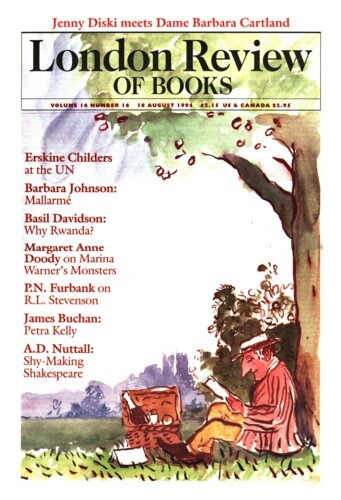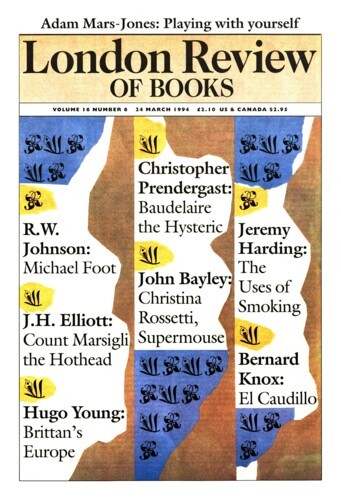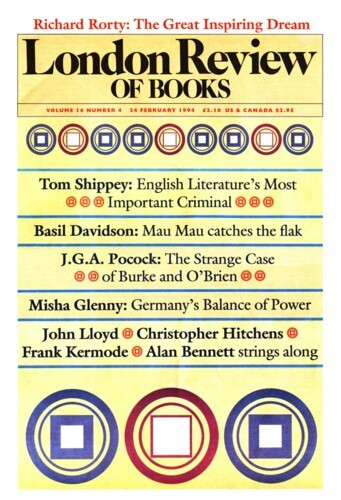What sort of man?
P.N. Furbank, 18 August 1994
According to Stevenson’s wishes, his letters were first presented to the public by his friend, the art historian Sidney Colvin. Colvin, described by Stevenson as a ‘difficult, shut up, noble fellow’, did the job reasonably conscientiously. He was, however, an arch-bowdleriser, using, as he said, ‘the editorial privilege of omission without scruple where I thought it desirable’ and painstakingly altering the novelist’s ‘bloody’ to ‘beastly’, his ‘constipation’ to ‘indigestion’ and his ‘God grant’ to ‘I only hope’. His own labours came to an end with the five volumes of letters in the Tusitala edition of 1924, since when innumerable further letters have turned up. Plenty of need, then, for a new edition, and the task was undertaken as far back as the Fifties by Bradford Booth. Indeed before his death in 1968 Booth had, with some assistance from Ernest Mehew, more or less completed it, but on what appeared to Mehew as faulty principles. Thus the present elaborate and magnificent edition, which is to run to eight volumes, is largely Mehew’s own work. One gets the impression that it could hardly have been better done, being beautifully laid out and organised, copiously and concisely annotated, and managing, by tactfully-dosed commentary, to achieve all the effect of a biography.



